Iranian Protester Was Shot In The Head By IRGC Officer: Relatives
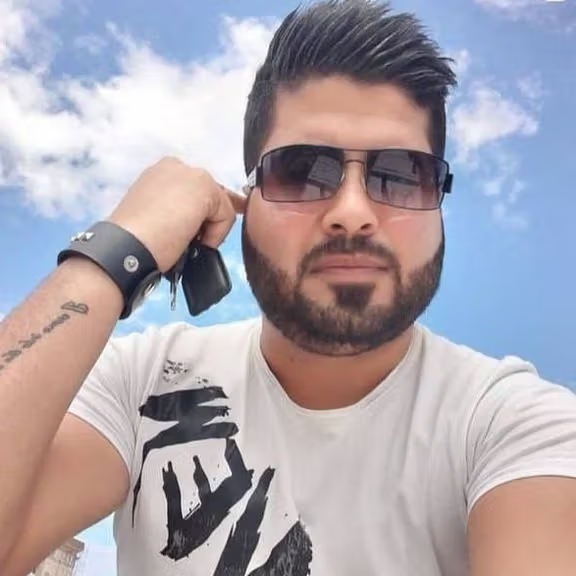
Iran International has learned that one of the victims of Iran protests was shot from behind the head at close range by an IRGC commander in northern Iran.

Iran International has learned that one of the victims of Iran protests was shot from behind the head at close range by an IRGC commander in northern Iran.
Mehran Basir Tawana, a 29-year-old athlete from Foman, was shot on November 16 on the anniversary of those who were killed in 2019 protests.
One of his relatives, whose identity cannot be revealed due to security reasons, told Iran International that "On November 16, Mehran got out of work with his friend to go shopping. On the way back, he saw a group of government agents beating an old woman."
"Mehran got out of the car to talk to the security forces very calmly to convince them not to beat her, but when he wanted to help the old lady to get out of the area, a commander of IRGC shot him in the back of the head, at a distance of almost one meter…,” he added.
According to this informed person, Mehran Basir Tawana was taken to hospital by other people, but three days later he succumbed to his injuries in Rasht hospital.
During a memorial ceremony for Mehran a few days later, those present chanted slogans against the Islamic Republic, and after that, the threats and harassment of other family members begin.
According to the source, at the same time one of the family members, who only published stories about Mehran's death, was arrested and has been tortured for more than a month.
Iranian human rights groups abroad monitoring the protests report that more than 500 civilians, including 64 children and 34 women, have been killed during since unrest began after the death of Mahsa Amini in police custody in mid-September.
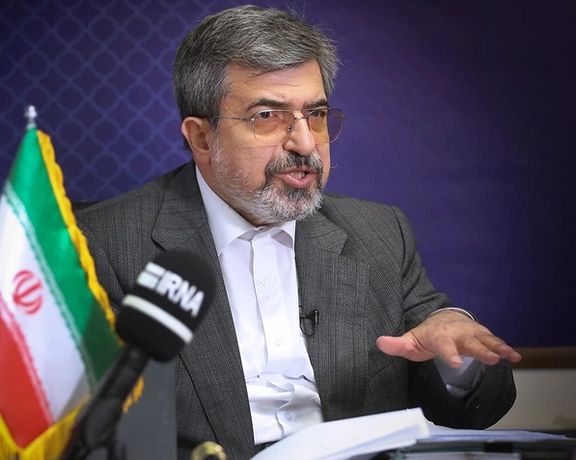
Iran’s hardliner Judiciary says two French and one Belgian national have been indicted for “espionage and working against Iran’s national security”.
In a press briefing on Tuesday, Judiciary Spokesman Masoud Setayeshi said the two French citizens have been indicted, but no verdict has been issued for them yet.
Regarding the Belgian national, Setayeshi said he was indicted and as soon as the verdict is issued the judiciary will announce it.
However, Setayeshi did not identify the detainees and did not provide any more information about their charges.
On the issue of almost 40 other detained foreign nationals, Setayeshi said they have been arrested in different regions of the country and are accused of different charges. He said the number of those other nationals is “limited” and the judiciary will give more information about their status in future.
Following Supreme Leader Ali Khamenei’s lead, Iranian officials claim that the ongoing antigovernment protests across Iran – ignited by death in custody of 22-year-old Mahsa Amini -- are instigated by foreign enemies.
After the outbreak of protests, Iran said in late September it had detained nine foreign nationals linked to unrest, including those from France, Germany, Italy, Poland and the Netherlands.
Meanwhile, several foreigners visiting Iran have disappeared, confirming earlier reports that the Islamic Republic is taking foreign citizens hostage.
Tehran denies any policy of hostage taking and insists all foreigners are tried according to legal process. However, it has frequently shown readiness for prisoner exchanges and participated in swaps in the past.
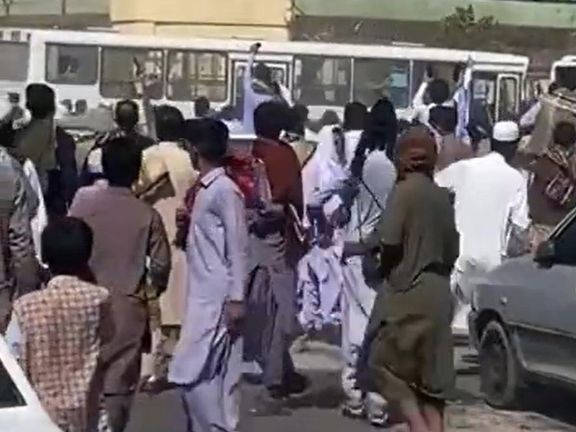
Iranian regime forces have arrested at least 40 citizens in a joint operation in the flashpoint city of Zahedan in the southeastern Sistan and Baluchestan province.
Halvash website that covers Baluchestan events said the operation was jointly carried out by the Ministry of Intelligence, the Revolutionary Guard, and the provincial police forces while the detainees have been transferred to an unknown place.
IRNA news agency quoted an “informed source” saying the detainees were “criminals and armed robbers of Zahedan."
However, activists say almost 30 were arrested in a sports field in Karimabad region of Zahedan.
Within the past thirteen weeks, Zahedan, a Sunni Baluch city, has been the scene of weekly protests against the regime on Fridays.
The Bloody Friday in Zahedan took place September 30, when security forces killed at least 93 people, and injured hundreds more as civilians protested.
The US-based Iranian Human Rights Activists News Agency (HRANA) reported Monday that at least 516 people, including 70 children have been killed by the regime forces during the nationwide protests following the death of Mahsa Amini in police custody in mid-September.
While the Islamic Republic has not provided accurate figures of those detained in the protests, the watchdog went on to say that at least 19,204 protesters have been arrested including 687 students.
HRANA added that 161 cities and more than 144 universities across Iran have also been the scenes of anti-government protests.

Iran’s Judiciary does not allow protesters and dissidents to choose their own lawyers during trials that could even bear the death sentence for the defendants.
According to Iran's laws, those on trial for crimes against national security can only be represented in court by lawyers that have the “endorsement” of the chief justice himself. Almost all dissidents are accused of acting against national security among other crimes, such as insulting the Supreme Leader or unlawful assembly.
The restriction also applies to protesters who have been charged with "corruption on earth" or "waging war against God'' both of which bear a death sentence. Iran's revolutionary courts have sentenced more than 50 protesters to death on such charges since November.
Two protesters who were hanged in December, Mohsen Shekari and Majidreza Rahnavard, were both deprived of the right to choose their own lawyers. They were represented at their trials by court-appointed lawyers. The two young men, apparently, met their attorneys on the day of their trial at court where the lawyers’ role was limited to keeping up appearances of a fair trial.
Iran’s Judicial system, controlled by the Supreme Leader, oversees both judges and prosecutors, while closely coordinating with security and intelligence entities.
Families of some protesters who are on trial allege that the lawyers representing their loved ones made very little effort to present a proper defense and their only statement in court was what was dictated to them by the judiciary and security agents to ensure a pre-determined outcome. The hanging of the two young men was meant to instill fear among the people and keep them away from the protests, the families and others say.
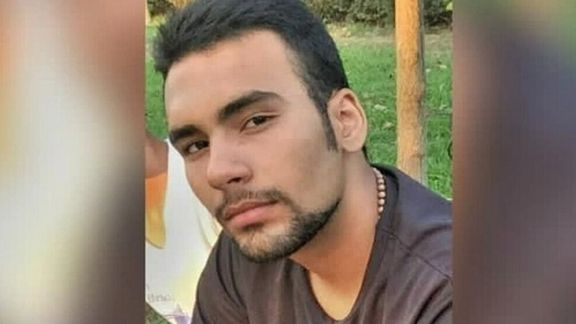
Mashallah Karami whose son Mohammad-Mehdi Karami has been sentenced to death in Alborz Province for alleged participation in the killing of a member of the Basij militia told Etemad newspaper recently that he tried to contact his son’s court-appointed “endorsed lawyer” for a week, after his sentence was announced, to proceed with appeals but never received a response from him. “The court-appointed lawyer refused to let me have the address of his office to go there and tell him what my son has told me for using it in his defense.”
“It’s a matter of life and death for a young man. Shouldn’t the family of the accused be allowed to have their own attorney?” Karami who says his son has sworn his innocence to him said.
Nemat Ahmadi, lawyer and professor of law, told Arman-e Emruz newspaper in December that some of the “endorsed” lawyers, even when appointed by the court rather than the accused, work for extremely high fees. “We heard recently that one [such] lawyer had demanded $250,000 from the family of the accused,” he said.
Ahmadi also pointed out that one of these lawyers told the judge at a recent trial, when he was asked if he had spoken with his client, that he had met his client who was hospitalized for “half an hour” before the trial.
Just a week ago, defense attorney Amir Raesian announced that authorities had finally accepted him and his colleague Roza Etemad-Ansari to represent jailed dissident Toomaj Salehi and that they would be meeting with Toomaj after reading the case files.
The lawyer’s announcement came amid international pressure on the Islamic Republic to free Toomaj who was arrested in late October. The 32-year-old popular rapper could be facing a death sentence for vague charges based on Islamic law, "corruption on earth" and "waging war against God”, brought against him.
“It’s a first and important milestone,” member of the German Bundestag Ye-One Rhie who recently accepted the rapper’s political sponsorship, tweeted about the new development in the case after the announcement.
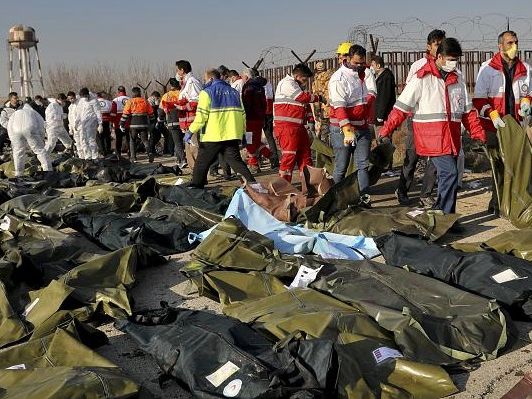
With days left to the third anniversary of the downing of a Ukrainian airliner by the IRGC, many activists and bereaved families have called for rallies to mark the occasion.
Dozens of groups urged people in Iran and abroad to hold mourning ceremonies as well as street rallies and strikes on January 8 to also honor civilians killed by the Revolutionary Guards, and condemn the human rights violations by the regime. Following the downing of Flight PS 752, the Islamic Republic tried to deny the incident for a few days before it was forced to admit that an air defense unit had fired two missiles at the airliner over Tehran.
In a statement, titled “This is no time for grief but for wrath,” at least a dozen rights groups said that three years ago following the incident, protests took place against the regime but now condemnations should be louder and heard everywhere.
"It's been more than three months that a huge revolution has begun to liberate women and all people suffering under oppression and exploitation in the shackles of the criminal rule - a revolution whose motto is "women, life, freedom" and one of its main goals is the downfall of the Islamic Republic. In the three months since the beginning of our revolution, the Islamic Republic has committed more crimes against the revolutionaries, teenagers, young people and protesters,” read the statement.
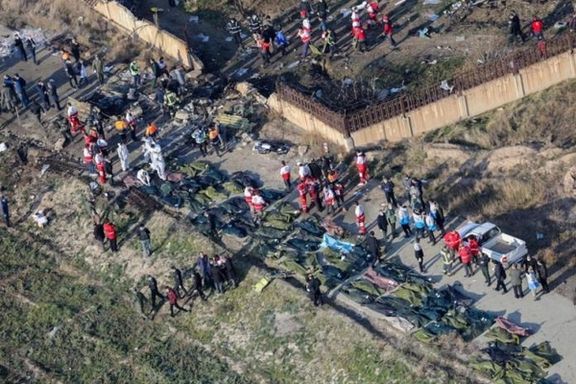
The Association of Progressive Students, Alliance of Doctors, the Union of Doctors and Medical Staff, the Freedom-loving students of Noshirvani University of Babol, the National Committee of Kordestan Province Students, the Association of Revolutionary Students of Tehran, the Alliance of Esfahan University of Technology, and many other are among the signatories of the call for action.
"Now we all have come to believe that we can overthrow the Islamic Republic and bring its big and small officials to justice,” they added.
On Sunday, Hamed Esmaeilion, the Canada-based activist whose daughter and wife were killed in the incident and serves as the spokesman for the families of Iranian victims of Ukrainian flight PS752, also called for a symbolic action on January 7. Noting that there is a graveyard that bears the bodies of the Islamic regime’s victims, he said, “we will lay flowers on the graves of all the victims of the Islamic Republic in the world.”
Last week, Britain, Canada, Sweden, and Ukraine formally launched a process to hold the Islamic Republic accountable for shooting down the Ukrainian airliner over Tehran, urging the Islamic Republic to agree to arbitration as Tehran has stonewalled over an independent investigation and proper compensation.
The airliner was shot down by two air-defense missiles fired by the IRGC as it took off from Tehran’s Imam Khomeini International Airport. Hours earlier, the IRGC had fired more than a dozen missiles at Iraqi bases hosting US troops in retaliation for the killing of the IRGC Quds Force Commander Ghasem Soleimani who was targeted by a US drone strike just five days earlier. All 176 passengers and crew, including 63 Canadians and 10 from Sweden, as well as 82 Iranian citizens on the plane died in the disaster.
This year, the anniversary for the victims is taking place as the current wave of antigovernment protests ignited by the death in custody of 22-year-old Mahsa Amini is raging on for over 100 days across the country. The protest rallies show no sign of abating as the regime has killed over 500 people and Iranians.
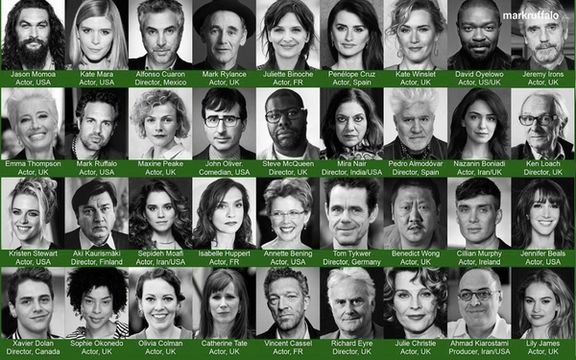
Over 600 artists around the world have signed a petition urging the Islamic Republic to release famous Iranian actress Taraneh Alidousti.
Like many other filmmakers and artists, American actor Mark Ruffalo published a post on Instagram Monday calling for her release.
He said up to now more than 600 artists have signed a letter calling for the release of the Iranian actress saying, “We want her to be freed.”
Seventeen days after her arrest, Alidousti has now been transferred to solitary confinement in ward 209 of Tehran’s notorious Evin prison, which is administered by the intelligence ministry.
In the online campaign launched under the title "Justice for Taraneh Alidousti", in addition to Mark Ruffalo, dozens of the world's most prominent figures, including Pedro Almodovar, Penelope Cruz, Juliette Binoche, Alfonso Cuaron and Ken Loach have joined the signatories.
Other signatories of the letter include Emma Thompson, Jason Momoa, Jeremy Irons, Kate Winslet, Marion Cotillard, Ian McKellen and Isabelle Huppert among others.
Amid the nationwide protests in Iran, Taraneh Alidousti published a photo of herself without the mandatory hijab while holding a placard reading “Women, Life, Freedom” which is the main slogan of protesters in Iran.
A few days later, in protest to the execution of Mohsen Shekari, a 23-year-old demonstrator, she wrote "Now wait for the consequences of this bloodshed."
The detention of Taraneh Alidousti has drawn widespread international reactions within the past two weeks, especially from the most prestigious film festivals in the world, such as Cannes, Berlinale, and Tribeca.